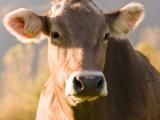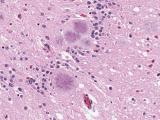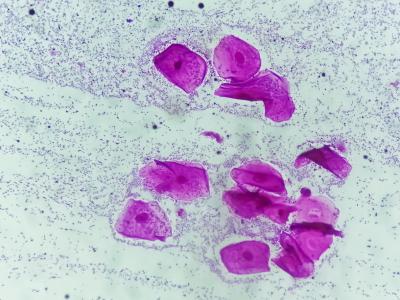Feb 23, 2004 (CIDRAP News) – A US Department of Agriculture (USDA) advisory committee says it needs help resolving different assessments of the nation's risk for more cases of bovine spongiform encephalopathy (BSE) before it can complete its recommendations for further steps to prevent the disease.
The USDA's Advisory Committee on Foreign Animal and Poultry Disease (ACFAPD) says it sees a "major discrepancy" between an international panel of veterinary experts and the Harvard Center for Risk Analysis in their estimates of BSE risk in the United States.
The expert panel, which functioned as a subcommittee of the ACFAPD, recently said the nation probably has more BSE cases besides the one found in Washington state in December. The subcommittee said US cattle probably have been "indigenously infected" as a result of cattle imports from Canada and possibly from Europe.
The Harvard Center for Risk Analysis, in a report issued in 2001 and updated last year, said that if BSE were introduced into the United States, it would spread very little and would eventually disappear, thanks to existing safeguards. The risk assessment was commissioned by the USDA.
In a report released today, the ACDAFP states, "The [advisory] committee cannot adequately resolve the differing BSE risk assessment presented by the Subcommittee as compared to the assessment by Harvard University. A major discrepancy exists with the Subcommittee's conclusion that BSE continues to circulate, or even amplify, in the US and North America, when compared with the Harvard risk assessment. The Committee must have this issue resolved prior to completing its recommendations to the Secretary [of agriculture]. It is imperative that the Secretary has the best available science and more precise risk assessments in order to make appropriate regulatory decisions."
The ACFAPD recommended that the Harvard group review the subcommittee's report and discuss it with the subcommittee before reporting back to the ACFAPD. In a news briefing today, Ron DeHaven, the USDA's chief veterinary officer, said the department is working to bring that about. "In fact, we have initiated discussion for this type of review and initiating that collaboration between Harvard and the review subcommittee," he said.
The subcommittee was asked to evaluate the USDA's response to the nation's first BSE case. In a report released Feb 4, the group lauded many of the USDA's actions but also called for increased BSE testing and some additional regulatory changes. Most notably, the panel recommended a ban on the use of specified risk materials (SRM)—high-risk tissues such as the brain and spinal cord of older cattle—from all animal feed, including pet food. Current federal rules ban SRM from human food and also ban feeding of any cattle parts back to cattle.
In the report released today, the ACFADP did not mention the call for a total ban on SRM in animal feed. However, the committee approved several of the subcommittee's other recommendations. One was a call for increased BSE testing of high-risk cattle, including nonambulatory cattle, those with symptoms of neurologic disease, and those that die on farms. The committee also endorsed the USDA's plans to develop a national animal identification and tracking system and called for the use of additional regional laboratories to conduct rapid BSE screening tests.
The Food and Drug Administration (FDA) regulates animal feed and pet food. At today's news briefing, the FDA's Steve Sundlof said his agency, like the USDA, wants a better handle on the BSE risk situation before it proposes any new feed restrictions. "We want to work with the USDA and Harvard in trying to reconcile these differences and then revisit the question about whether or not additional measures need to go into place on restricting feed from certain animals," he said.
See also:
Transcript of Feb 23 USDA news briefing
http://www.usda.gov/documents/NewsReleases/2004/02/0082.doc
Feb 16 CIDRAP News story, "Member of BSE review panel sees no clash with Harvard study"


















